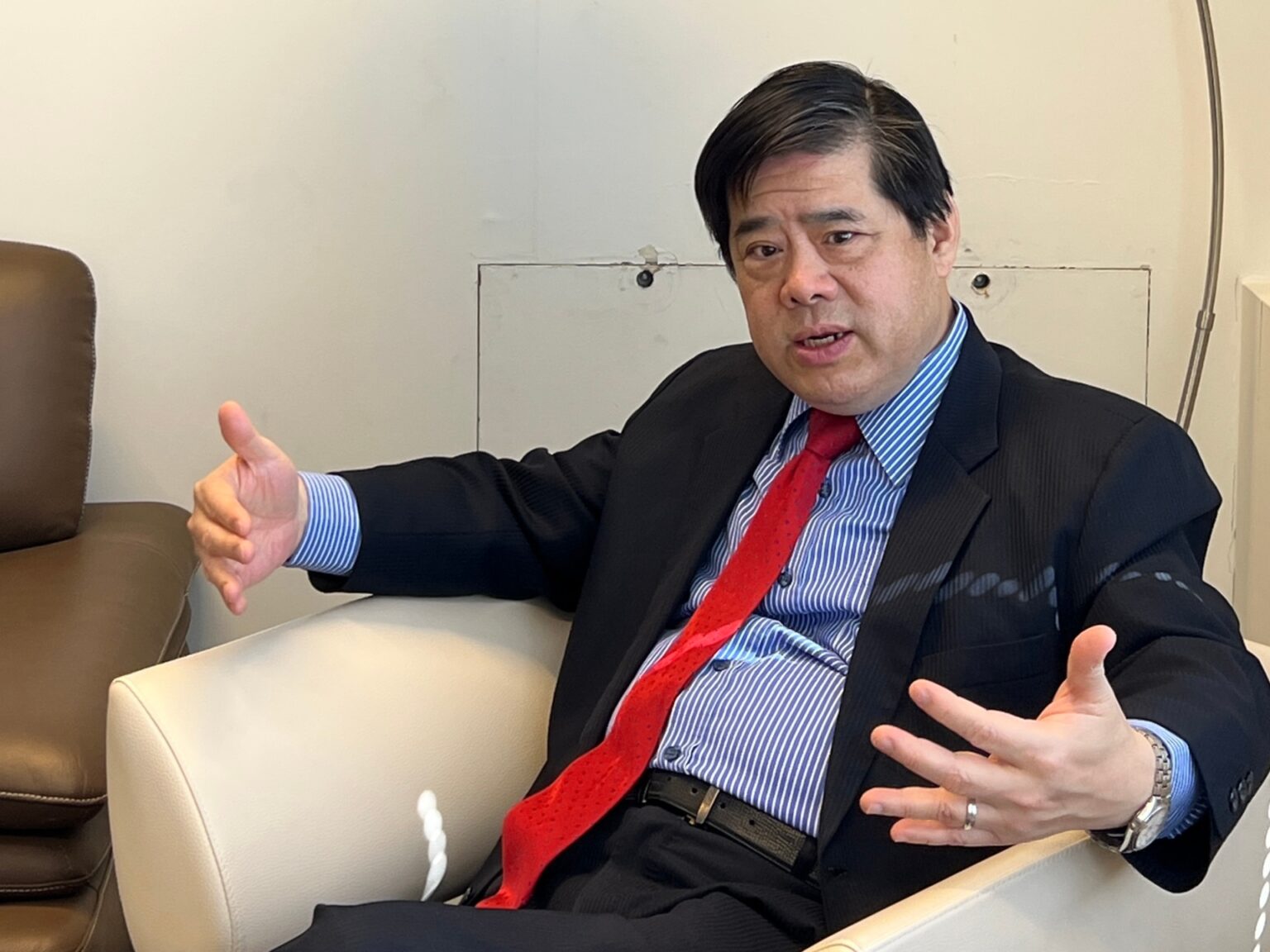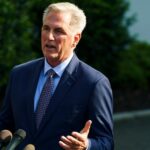Global Courant 2023-05-23 16:12:22
Taiwan has begun military exercises to strengthen its borders amid ongoing tensions with China in the Taiwan Strait.
Beijing claims the self-governed island, which seceded from mainland China in 1949, as its own and has threatened to take it by force if necessary.
When an official from the United States, the European Union and elsewhere visited Taipei in recent months, Beijing stepped up the pressure by holding military exercises nearby.
China has also sought to isolate Taiwan on the international stage by objecting to or vetoing its membership in international groups and events, such as the annual meeting of the World Health Organization in Geneva this year.
Since Russia invaded Ukraine last February and Beijing and Moscow renewed their “unlimited partnership,” defense and policy analysts, as well as some Western leaders, have questioned whether Taiwan could become the next Ukraine.
Al Jazeera spoke to Remus Li-Kuo Chen, the Taipei Representative Office in the EU and Belgium, about the comparisons between Ukraine and Taiwan, and how the European Union and other countries around the world are easing tensions. The EU and its member states have no diplomatic relations with Taiwan, but Chen’s office is the island’s de facto embassy in Brussels.
Al Jazeera: What comparisons can you draw between the Russian war in Ukraine and tensions in the Taiwan Strait?
Remus Li-Kuo Chen: Since the beginning of the war, Ukraine and its people have been very brave and courageous to fight for their territorial integrity and sovereignty.
As a democracy that also guards our borders, we understand the plight of the Ukrainian people.
In the Taiwan Strait, our democracy is under serious threat in the form of economic coercion and military intervention by our neighbor China. There is a goal to divide our society, and we are very concerned about that.
But the situation in Ukraine and the Taiwan Strait shows that we must continue to fight alongside like-minded allies to maintain the rules-based international order and confront authoritarian regimes.
Al Jazeera: China has sent an envoy to travel through the EU, Ukraine and Russia. What do you think of Beijing’s new mediation efforts?
Chen: Peace is something only the people of Ukraine can decide on. Over the past year, many countries, analysts and former world leaders have put forward thoughts and proposals on how this war could come to an end. But the final decision on a peace proposal comes down to Ukraine and how the country sees its future after the war.
Al Jazeera: The EU seems largely united on its support for Ukraine. Is the block also in line with Taiwan? French President Emmanuel Macron was recently accused of playing into Beijing’s hands by suggesting that Europe should avoid involvement in any confrontation between China and the island.
Chen: The most recent example of the EU’s unity towards Taiwan and its position towards China was the speech by the President of the European Commission, Ursula von der Leyen. That speech was a message to the world that the EU is reassessing its strategy for dealing with China and defining their future relationship.
From our side, it is important that this policy between the EU and China ensures security and peace in the Taiwan Strait, because 40% of international trade takes place in this strait. It is actually important for not only the EU but the world to ensure that no conflict breaks out in this strait.
As for the comments made by some EU officials during a visit to China, I think that this is not necessarily the correct interpretation, because the government of China has a knack for putting words and thoughts in the mouth of the visiting leader.
We have to be very careful as we try to understand the real intentions of the visiting leaders, their statements and actions on Chinese soil and fact check everything before jumping to conclusions.
Al Jazeera: How have relations between Europe and Taiwan evolved in recent years? Do you see trade deals being finalized?
Chen: In recent years, we have seen positive momentum in Taiwan’s relations with the EU, especially against the backdrop of the war in Ukraine and a post-pandemic economic era.
Investment from Taiwan to the EU from 2016 to 2023 has grown 5.5 times, more than the same period in the previous seven years.
There is a lot of interest from companies in Taiwan to open factories in the EU. Recently, one of Taiwan’s leading manufacturing companies said they will invest 2 billion euros ($2.15 billion) in Dunkirk, France, to open a lithium-ceramic battery factory. And the EU is interested in, for example, semiconductors that Taiwan produces.
A trade initiative between the US and Taiwan is also underway on a global level. Talks have also started with Canada and other countries, showing our European counterparts that we are a solid base for trade and investment.
It is only a matter of time for the EU and Taiwan to create pathways that will lead to a trade deal.
Al Jazeera: After the pandemic, healthcare collaboration is a priority. The World Health Assembly starts this week in Geneva, but Taiwan has not been invited. How do you feel about this?
Chen: Taiwan has not been invited as an observer to the annual event of the World Health Assembly in Geneva, Switzerland, and we absolutely want to continue to receive the support of the international community.
In a post-pandemic era where healthcare is of primary importance, it is important that the international community rely on each other to share public health information, medical technology and supplies, as well as vaccines. Why should 23.5 million people in Taiwan be an exception to losing these health rights? We held demonstrations last year and will do the same all over the world this year to ensure we are invited to the meeting.
Al Jazeera: You spent many years in the US as part of Taiwan’s foreign service. How do you characterize that experience in comparison to your European role now?
Chen: In my 30 years of experience in Taiwan’s foreign service, I am pleased to see that the EU and the US share common values when it comes to democracy, the rule of law, human rights and peace.
I believe that a strong EU-US transatlantic partnership will benefit Taiwan. Ensuring peace in the Taiwan Strait requires unity between Europe and the US, and while both have proactively expressed their support for Taiwan, differences exist in the way they show solidarity.
But they are aware that a collective and integrated approach will send a strong message of deterrence to China.




